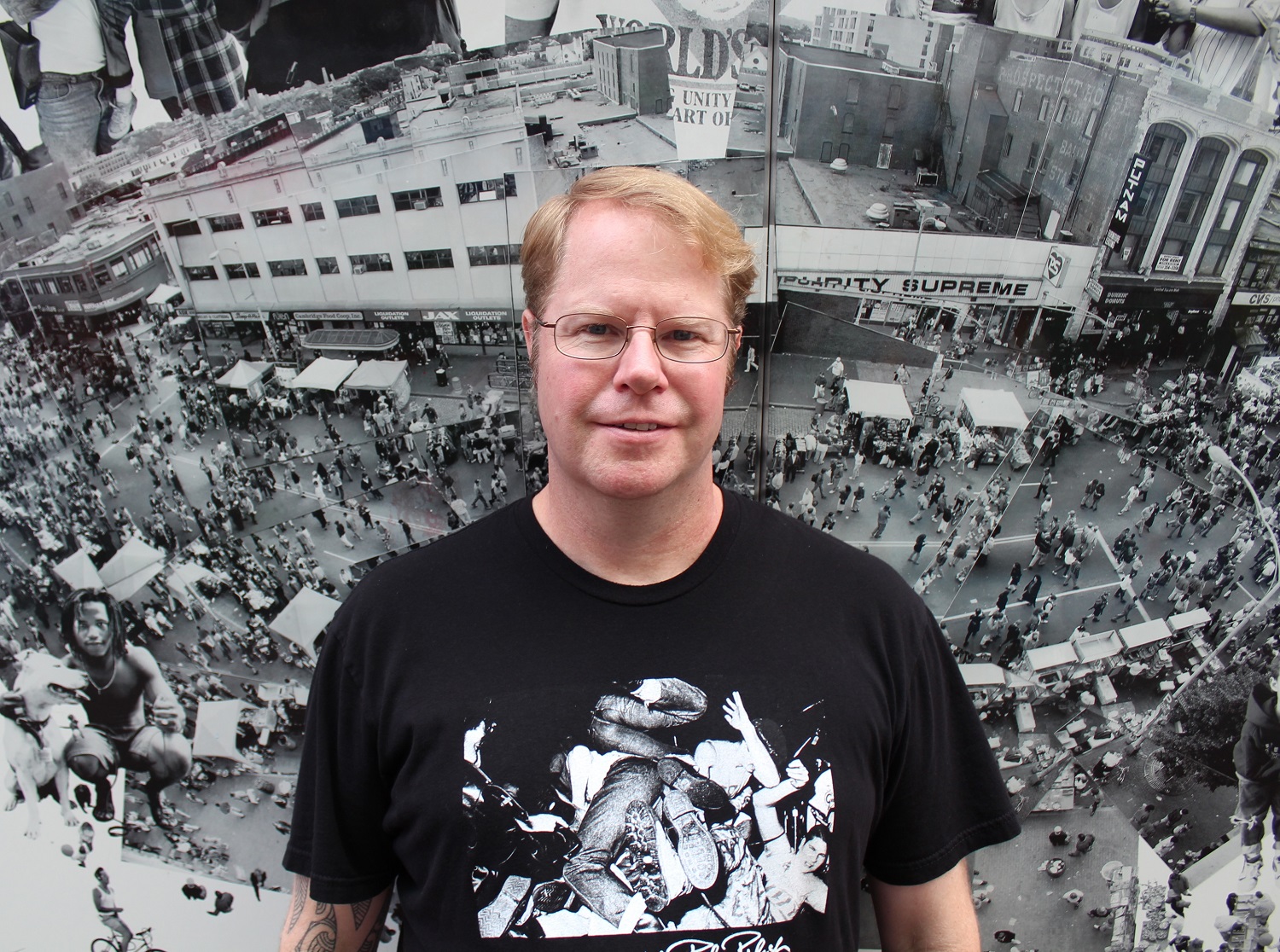Throughout the history of hip-hop, there have been many unsung heroes who were willing to play the background and focus on creating fresh, engaging media to get the word out. Recently, I caught up with veteran hip-hop historian and journalist Brian Coleman to discuss his latest book, Check the Technique Volume 2. The book features interviews with legendary artists explaining what was going on in their lives during the making of one of their classic albums, as well as track-by-track breakdowns. Essentially, it’s crack for music junkies. Coleman will be in Eugene, Portland, and Seattle the week of April 13 to promote his book, as well as hold a talk with Boots Riley from The Coup at the University of Oregon. For dates and times for Coleman’s Northwest tour, go here.
Coleman had plenty to talk about on topics ranging from the importance of preserving hip-hop history to watching the growth of the Boston hip-hop scene (which should sound familiar to anyone in Portland). Here’s a bit of what he had to say:
Can you talk about the importance of this work in preserving hip-hop history?
There’s two things. First of all, there’s the aspect of talking to artists about their stories and talking to artists about certain facts and certain things about their own careers and their own albums. Versus–there’s a lot of books out there still, and they’re certainly worth the time, where it was about what a writer thought about this or they would kind of wax poetic about why they loved Illmatic. And those are kinda okay but I always just wanted to hear from the artist.
There’s also the aspect of making it more permanent. So putting it in a book versus having it be in a magazine. (There’s) magazine stuff going back to the Source and back to Rap Masters Magazine in the 80s, and even newspapers–Village Voice and the New York Times and all these other places. It’s not like no one was covering hip-hop and it’s not like no one was talking to artists. To really properly hear an artist’s story–so if you wanted to know about Stetsasonic–there wasn’t really one place to do that. So that was kind of my quest. I wanted to know more about Mobb Deep. How did Mobb Deep start? What was the climate they were in both personally and in the music world back then? What was it like to record their album? That didn’t really exist. There were a couple of pockets. Many people in hip-hop were talking about the scene in general or what was going on at the labels. There wasn’t anything specific.
Your bio says you moonlighted as a hip-hop journalist while covering avant garde jazz. Could you talk about that period in time and did covering jazz have any effect on how you look at hip-hop?
What that impressed upon me was how hard artists work. I’m not a musician. I have friends who are musicians. Making art is a very personal thing. It’s rarely an easy struggle. That’s what the books are about. The trials and tribulations these artists go through. The real triumph isn’t whether you go platinum or not. It’s really about the artistic process and what people go through to have their music go beyond them just making it and listening to it in their bedroom.
Do you plan to continue the series?
I don’t have any plan to do another volume right now. In three volumes, I’ve covered 66 albums up to this point. Which is a lot. So I’d like to do other books but I don’t know if I’d necessarily to do another in this series.
What’s one album in particular that you wanted to do an interview for that didn’t happen?
It would’ve been pretty amazing to do a chapter on The Chronic but Dre doesn’t like to talk about old stuff. He’s clearly surrounded by a lot of people–let’s put it this way, his hourly rate is pretty high so I’m sure his handlers feel like he’s got better things to do than talk to me for a chapter. Yet again, I don’t get offended by it. It’s too bad for me personally and honestly I think it’s too bad for fans but that doesn’t mean he’s not going to write his own book one day. I’m sure he will and I’m sure he’ll talk about The Chronic in depth and I’ll buy that book.
What was Boston’s hip-hop scene like when you were coming up?
Hip-hop stuff was much more on the local level until ED OG came out in the early 90s. It was a very local scene. A very tight scene. It was hard for groups to get shows. There was a lot of very racist stuff going on at clubs in downtown Boston. Just straight up, bald faced racism about ‘No, we don’t want to book that stuff in our club’ kind of stuff.
Then towards the late 90s, things started to get better. There were some good promoters trying to get stuff in clubs. You had a lot of the underground guys like Mr. Lif, Akrobatik, 7L & Esoteric. And a lot of that stuff started popping off at that point. There were local labels like Brick Records that are still around today doing great stuff. And, that kind of opened things up and made it so whether you were indie or on a major, you at had places to play, which was always the most important thing for a scene. Where you can share your music. You can share ideas. You can share contacts. That kind of thing.
As long as there’s people who want to fight through all the bullshit, that’s a positive thing and that’s how music brings people together. That was an incredible thing for me to be a part of and now for me to document a little bit too and tell about that stuff is important. Sometimes you’ve gotta take the bad with the good and talk about how stuff was happening and how people got through it in a positive way and kinda banded together.
Can you talk about your inspirations?
I think the David Toop book (The Rap Attack) was for me, the most important. It inspired me to try to get to that level where you describe something so it’s both informative and exciting… It’s a skill. David Toop had it. Where you read something in a book, magazine, or whatever and it makes you go and want to listen to something. It makes you feel like you’re missing out because you’ve never heard this album.
I’ve had people tell me that’s what they like doing. They’ll read a chapter and then they’ll go and listen to that album. They’ll go read the chapter on Dr. Octagon and then they’ll go listen to that album in a different way than they’ve listened to it before because they know more about it. And that’s not necessarily because of my writing. That’s just because of the stories and listening to Kool Keith and Dan the Automator talk.
Anything else you’d like to add?
These books are a huge pain in the ass to do. The best thing about them is once they’re out–when I get to use them as an excuse to have these conversations and get out and meet people and everybody kinda gets together and talks about the music we all love. That’s the best part of it for me. That’s what I’m very excited about. Being out there and going to cities I’m not as familiar with. Like Portland, Eugene, and Seattle.





